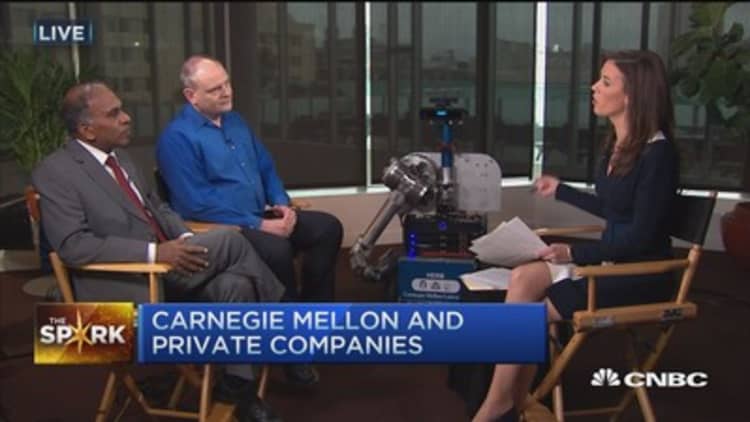
A "reptilian revolution" has the potential to reshape manufacturing.
The "snakebots" being developed at Carnegie Mellon University aren't just useful for surgical or search-and-rescue purposes. They could also usher in a new, more customized era of mass production.
The snakebot, which is a type of mechanized, biologically inspired robot, itself has roots in Japanese laboratories of the 1970s. What the team at Pittsburgh-based Carnegie Mellon is doing today under professor Howie Choset is making the snakebots stronger, smaller and more maneuverable than ever.
Where do snakebots have the most potential?
"Anything where you have to get in a tight space that conventional people and machinery can't access," Choset told CNBC. That includes sewers and nuclear plants.
It also includes the factory floor. In fact, the whole concept of large factories with huge infrastructure necessary to produce, say, ships or airplanes, is what snakebots have potential to help do away with.
Read More Broken promises: Candidates struggle to deliver manufacturing jobs
That's because these machines not only can maneuver in places previously unreachable to most fixed equipment. They can also be programmed to behave differently each time, allowing for large-scale production of individually tailored units.
"This will allow small companies to enter manufacturing who otherwise couldn't," Choset said, "and it also allows larger companies to be more agile."
It could mean the end of that costly, cookie-cutter mass production that has turned off so many consumers. It could bring down the fixed costs of investment to free up more capital for businesses. It could allow for planes, tractors or everyday gadgets to be customizable beyond imagination today.
Read More Reinventing the meal: Dishes from a robot cook
"I believe that some of the work we're doing here will give the U.S. a renaissance in manufacturing," Choset said.


